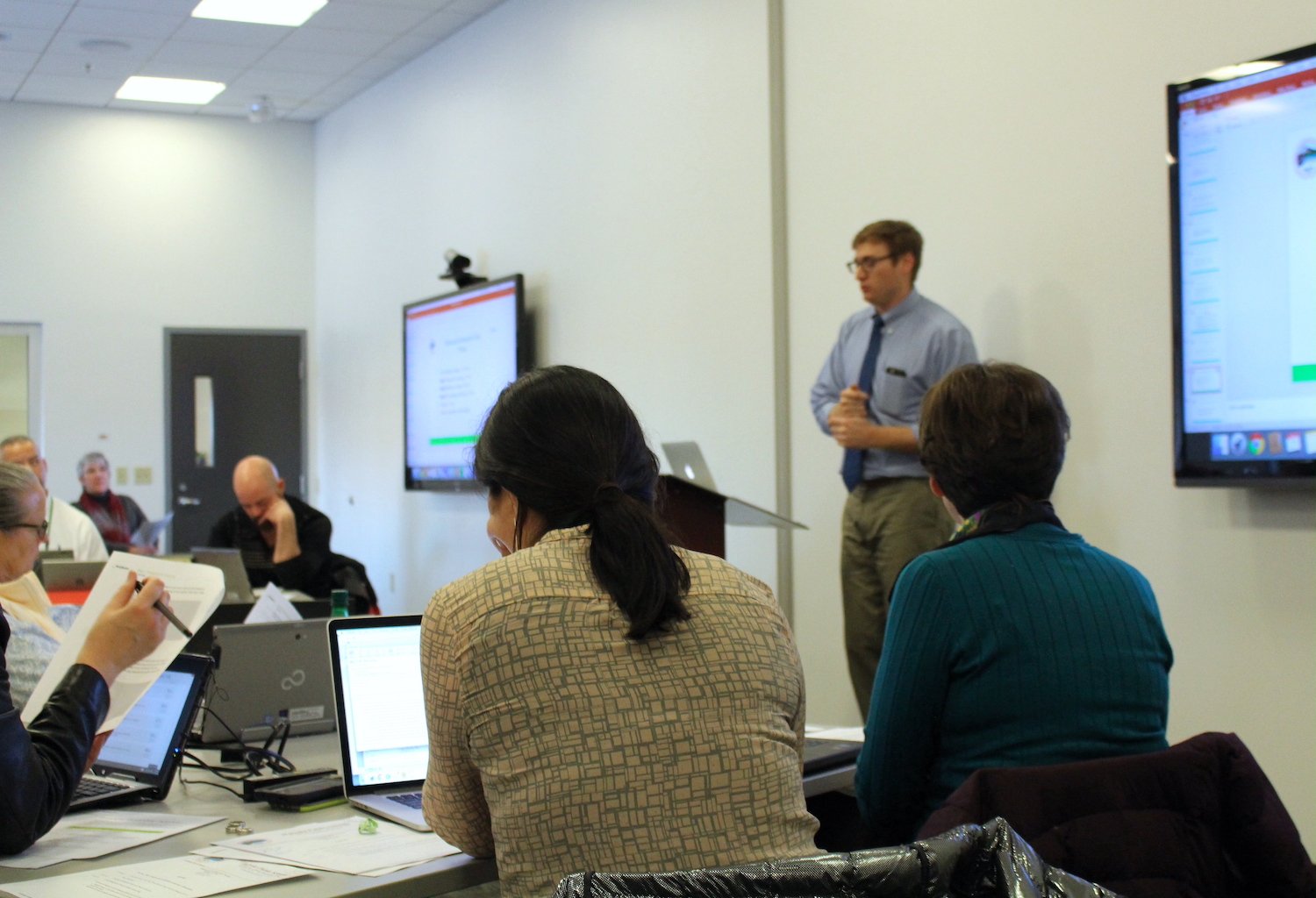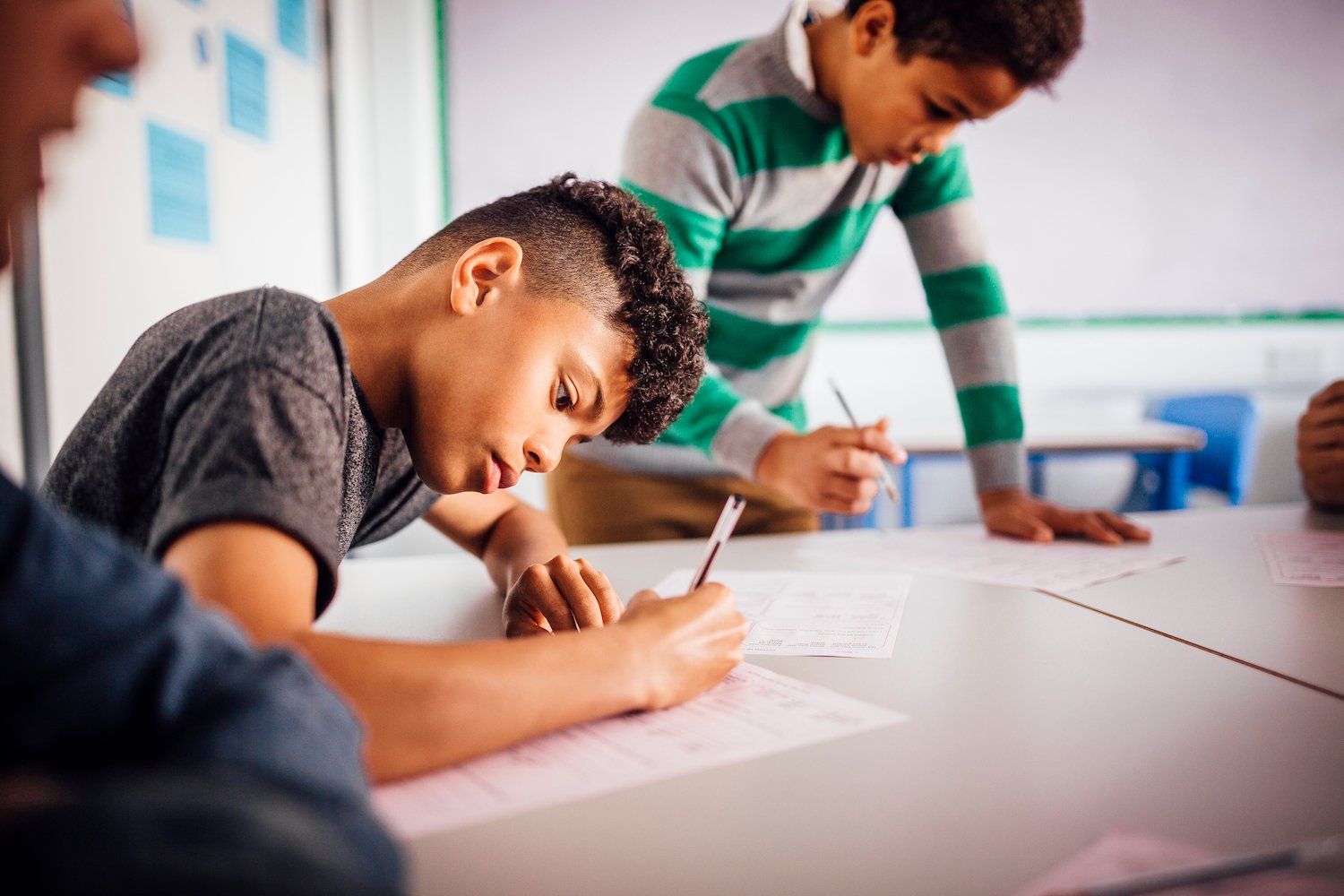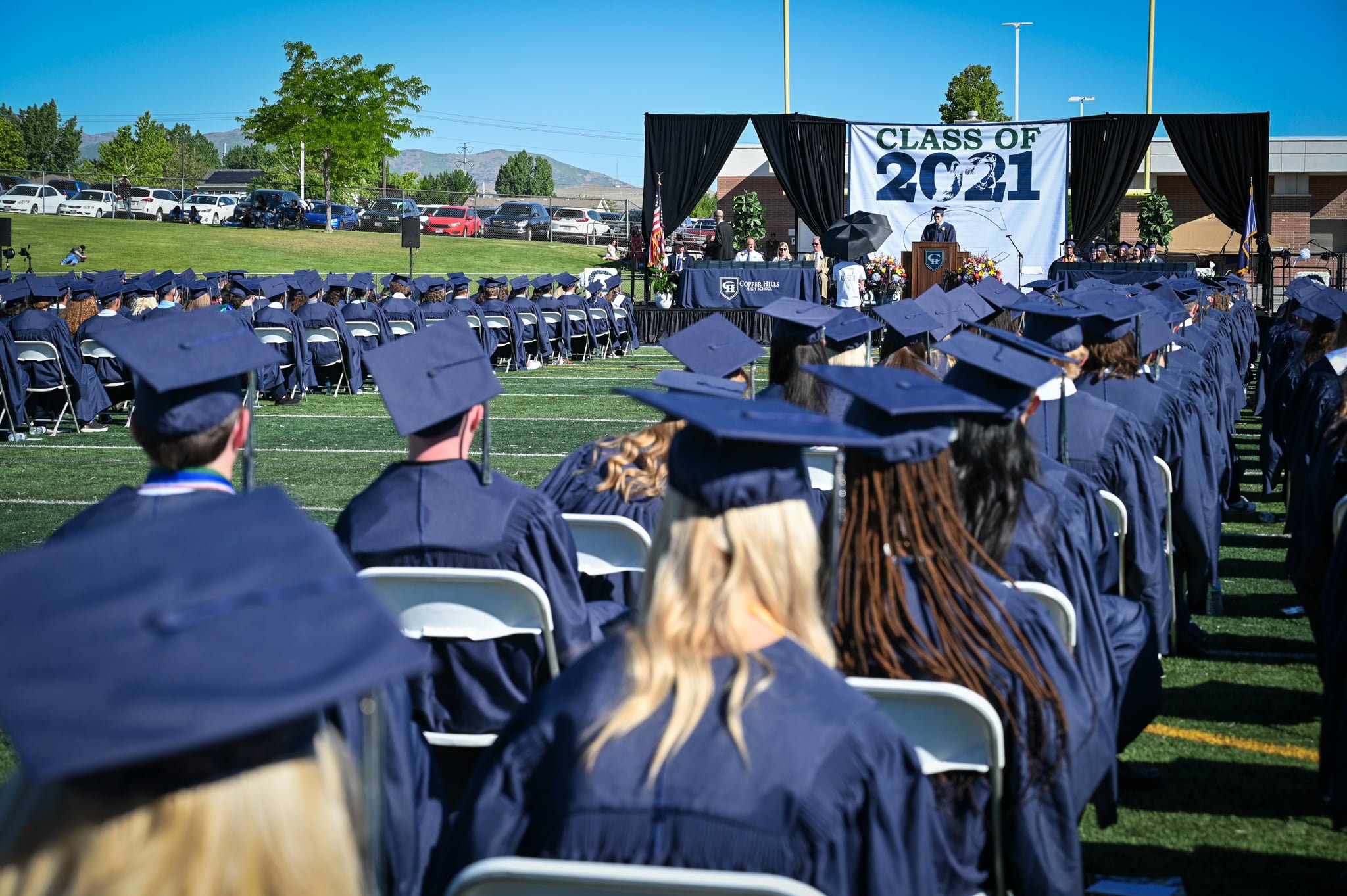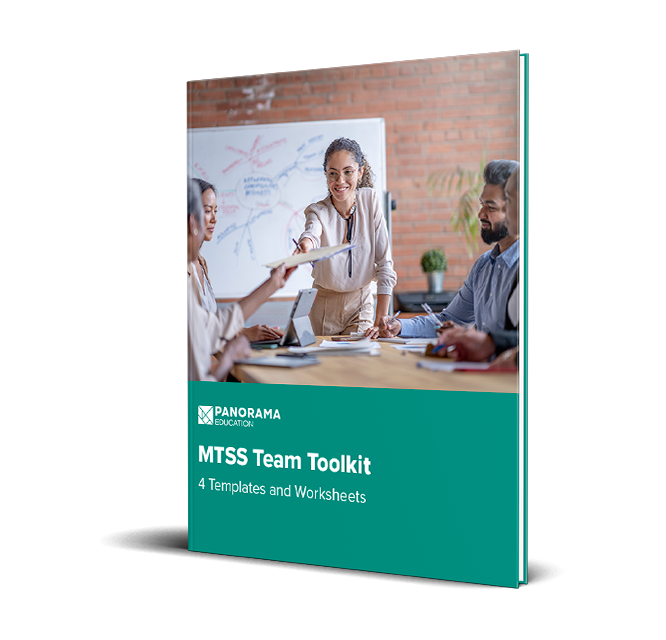Is your district ready to implement a multi-tiered system of supports (MTSS)? Do you know what types of roles you'll need to bring your MTSS vision to life?
When implemented well, MTSS is an integrated, district-wide process that ensures each and every student gets the support they need across academics, behavior, and attendance.
MTSS requires having high-quality data available at all levels (district, school, and classroom). It also requires strong leadership, collaboration, and communication across departments and campuses.
That's why many schools and districts are developing full-time MTSS positions or building out MTSS departments.
We developed these MTSS job descriptions as an additional resource for your hiring needs! The descriptions are written for a general MTSS program, so we recommend adapting them to fit your school or district's own approach. Feel free to access and make a copy of the job descriptions in a Google Doc.
MTSS Jobs to Consider Hiring For:
1. Director of Multi-Tiered System of Supports (MTSS) Job Description
Other Similar Job Titles: MTSS Director, Director of Interventions, MTSS Program Manager, Director of MTSS/SEL, Director of Student Support Services
As the Director of Multi-Tiered System of Supports (MTSS), you will lead and oversee the development of a district-wide MTSS program that supports the whole child. You will be responsible for collaborating closely with building administrators, educators, support staff, families, and students to establish and implement a tiered framework that uses data to meet the needs of each and every student through academics and behavior interventions. You will provide guidance across the district to ensure that research-based MTSS strategies, interventions, and systems are in place to support student achievement.
Responsibilities:
- Lead and monitor a district-wide MTSS implementation plan aligned to the district’s vision for MTSS.
- Implement and lead a District MTSS Committee that includes representation from school sites and other key stakeholders.
- Based on needs assessment, oversee the development of Tier 1, 2, and 3 intervention protocols, problem-solving processes, data-based decision-making, progress monitoring, and communication and collaboration processes among Student Support Teams.
- Identify and implement district-wide universal screening for academics and behavior.
- Develop training programs and provide ongoing coaching for leadership teams, staff, and teachers on the MTSS framework and research-based practices for tiered intervention.
- Implement an MTSS intervention management system (e.g., Panorama) and partner with school sites to ensure effective data collection, data analysis, and program evaluation and efficacy.
- Partner with community organizations, government agencies, out-of-school programs, and families to ensure availability of resources for school sites.
Requirements:
- Bachelor's degree from an accredited college or university; MA degree in education, educational administration, counseling, social work, or related field preferred
- 5+ years of experience in educational administration
- Knowledge of the MTSS framework, positive behavior interventions and supports (PBIS), response to intervention (RTI), restorative practices, trauma-informed practices, and family engagement
- Ability to provide leadership and manage complex projects
- Ability to facilitate change management within individuals, teams, and organizations, including implementing professional learning for adult learners and staff development
- Exceptional interpersonal skills and strong verbal and written communication skills
- Ability to collect and analyze data to drive improvement
- Commitment to working with students from marginalized communities through an asset-based mindset and approach
2. MTSS Coordinator Job Description
Other Similar Job Titles: MTSS Specialist, Coordinator of MTSS & Intervention, Project Coordinator for MTSS, MTSS Coach
Reporting to the Director of MTSS, you will support the effective implementation of the district’s multi-tiered system of supports (MTSS) model and vision. The MTSS Coordinator will assist in all MTSS procedures across the district, including communicating with school site teams, developing training for school staff and teachers, providing resources in the area of MTSS, guiding school-based processes, and monitoring data.
Responsibilities:
- Work collaboratively with district administrators, school-based leadership teams, and teachers to facilitate implementation of a multi-tiered system of supports (MTSS) at the district and school levels.
- Monitor the fidelity of implementation of MTSS at school sites, including the identification of students, delivery of Tier 2 and 3 interventions, and progress monitoring.
- Coach school sites on analyzing student needs and identifying research-based interventions across academics and behavior.
- Help establish data collection and analysis procedures through a data system (like Panorama) to inform decision-making around student needs and district/school resource allocation.
- Develop meeting cadences and agenda for the District MTSS Committee.
- Coordinate and facilitate MTSS professional development and training for school-based and district staff.
- Compile and report on effectiveness of interventions on a monthly basis to improve district and school systems.
- Develop and maintain positive working relationships with families, staff, and community members.
Requirements:
- BA/BS degree or equivalent working experience
- Knowledge of a multi-tiered system of support (MTSS) model, implementation of MTSS, and intervention strategies
- Experience designing and delivering professional development
- Ability to plan, organize, and work collaboratively with other teams
- Strong interpersonal skills and the ability to create positive relationships
- Strong organizational skills with excellent attention to detail
- Proficient in intervention management software and Microsoft Office programs, including PowerPoint, Word, and Excel
3. MTSS Interventionist Job Description
The MTSS Interventionist will provide direct intervention and progress monitoring for students who need support in reading, math, or behavior. You will be responsible for assisting with the development of a systematic school-wide approach to MTSS. Activities may include coordinating classroom intervention programs, providing curriculum and instructional support to teachers including effective intervention strategies, and implementing specialized services to meet the needs of each and every student. This position reports to school leadership.
Responsibilities:
- Coordinate and facilitate the implementation of academic interventions for students in need of support towards meeting course standards.
- Uses data to identify students for Tier 2 or 3 intervention support.
- Delivers research-based strategies and techniques to support students individually or in small groups.
- Assist teachers and instructional staff in addressing student learning using the MTSS framework; provide guidance on strategies, tools, and techniques to effectively teach all students.
- Develop, document, and maintain ongoing intervention plans in the intervention management system.
- Maintains progress monitoring data on how students are responding to intervention plans to make adjustments as needed.
- Communicate with families regarding student progress and provide strategies families can use at home.
Requirements:
- BA/BS degree or equivalent working experience
- Valid state licensure for teaching
- Knowledge of the MTSS model and how to implement interventions and monitor student progress
- Knowledge of current research on academic and behavioral interventions
- Experience working with and developing programs for diverse groups of students
- Effective coaching skills
- Ability to analyze data and use data to drive decision-making
- Proficient in intervention management software and Microsoft Office programs, including Word, PowerPoint, and Excel
4. MTSS Teacher on Special Assignment (TOSA) Job Description
Other Similar Job Titles: MTSS Coach
The MTSS Teacher on Special Assignment (TOSA) will support the implementation of the district’s multi-tiered system of support (MTSS) at the school site level. Under the direction of a district office administrator, you will collaborate with site staff in coordinating a tiered intervention model across academics, behavior, and life skills that includes assessment, instruction, progress monitoring, and evaluation of intervention programs with the goal of increasing student achievement.
Responsibilities:
- Support district and school leadership teams to ensure MTSS processes, protocols, plans are implemented with fidelity and meet the needs of students.
- Support and coach classroom teachers on best practices for Tier 1 instruction and Tier 2 intervention.
- Share resources such as research-based instructional strategies and interventions to improve student achievement and school climate.
- Create a site-based intervention menu for ELA, math, behavior, and SEL.
- As needed, provide direct instruction with small groups and individual students.
- Facilitate high-quality professional development for teachers on intervention delivery, instructional design, and other MTSS processes.
- Participate in grade-level/student support team meetings to advise on the use of data to identify students for tiered intervention and to design intervention plans aligned to student needs.
- Support grade-level and building-level decision-making based on MTSS data and outcomes.
Requirements:
- Bachelor’s degree and valid state licensure for teaching
- 3+ years teaching experience preferred
- Knowledge of the MTSS model and how to implement interventions and monitor student progress
- Demonstrated skills working with students in an intervention setting.
- Outstanding oral and written communication skills
- Strong interpersonal skills
|
Frequently Asked Questions: 1. Why is collaboration between district administrators, educators, and support staff essential for successful MTSS implementation? Collaboration ensures alignment and consistency in implementing MTSS strategies across all levels of the district, facilitating comprehensive support for students' academic, behavioral, and life skills needs. 2. How does data play a central role in the MTSS framework, and how is it utilized at different levels of implementation? Data-driven decision-making is foundational to MTSS. It enables identification of student needs, progress monitoring, and evaluation of intervention effectiveness, guiding intervention planning and resource allocation at district, school, and classroom levels. 3. What strategies can districts employ to overcome challenges in MTSS implementation, such as resistance to change or limited resources? Strategies may include providing ongoing professional development, fostering a culture of collaboration and shared ownership, securing external partnerships for additional resources, and transparently communicating the benefits of MTSS to stakeholders. 4. How do MTSS roles like Coordinator, Interventionist, and Teacher on Special Assignment contribute to the success of the program? These roles provide specialized expertise and support at various levels of implementation, facilitating effective coordination, intervention delivery, and professional development to ensure fidelity and sustainability of MTSS practices. |




.png)


